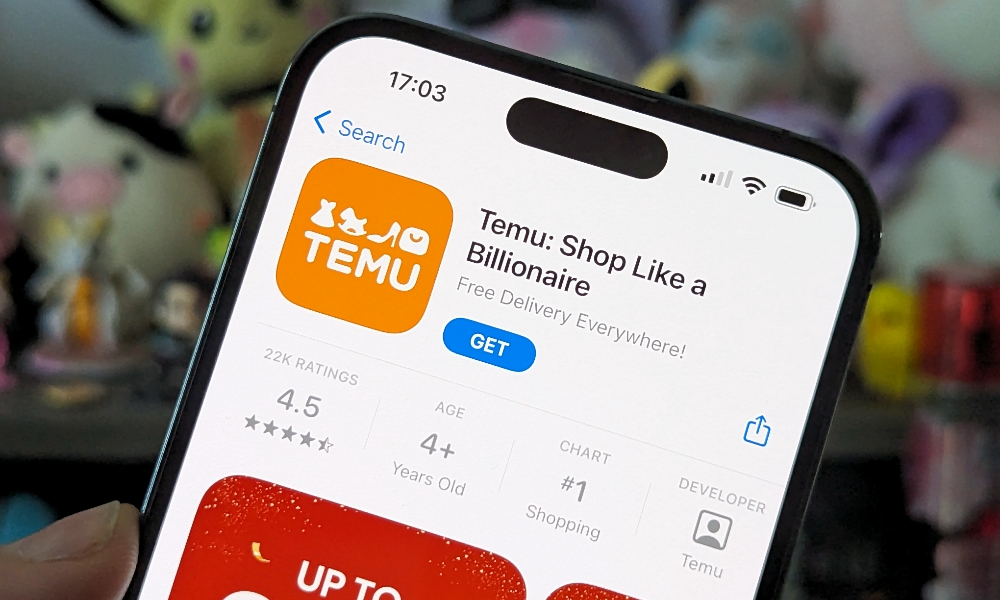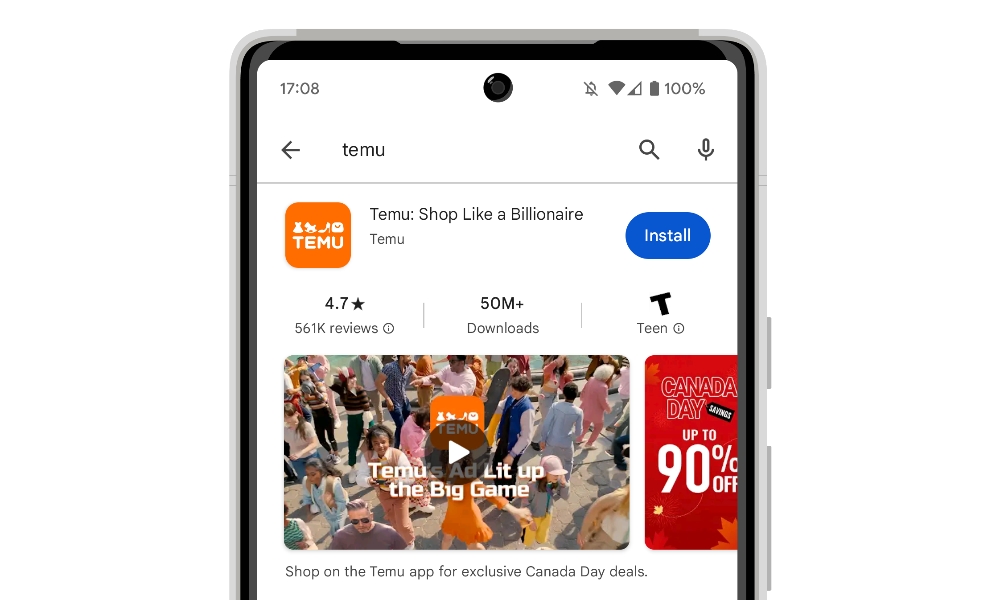This Most Downloaded App Is Not as Safe as You Might Think
 Credit: Kon Karampelas
Credit: Kon Karampelas
Toggle Dark Mode
When it comes to buying stuff online, the first platform that probably comes to mind is Amazon. After all, it’s the biggest online retailer in the world, and that’s not going to change any time soon.
With that said, there is a new player in town. You’ve probably already heard of this little app called Temu.
Temu went live in September 2022, and it quickly became one of the most popular online shopping apps in both Google’s Play Store and Apple’s App Store. It even became more popular than Amazon — at least in the app stores.
While this app sounds great on paper, Temu has raised a lot of concerns about privacy and how it uses your data.
What Is Temu?
Temu is an online shopping app like Amazon, Walmart, or Alibaba. At the time of writing, this platform can be found in 22 different regions, including Canada, the US, the UK, Australia, and Mexico.
What makes Temu stand out is its cheaper prices. It works similarly to online platforms like AliExpress or Alibaba. This means you can find a lot of decent-quality products for a really cheap price.
Of course, don’t expect to go to Temu and find a high-quality phone or a MacBook. In fact, one of the reasons why Temu is facing issues is because of the quality of its products. Not only that, but other people report that they never actually got what they paid for, which we’ll talk about a bit later.
However, that’s not Temu’s biggest problem at the moment.
Temu Isn’t as Safe as You Think
The biggest problem Temu is facing right now is in terms of security. There have been many people who aren’t sure if they can trust Temu, and some people have gone so far as accusing Temu of selling your data to China.
According to the New York Post, Temu is actually stealing your data for communist China.
The truth of the matter is that Temu is collecting a lot of delicate data from its users. It doesn’t matter if you use it on your iPhone or desktop. Temu is collecting more data than you should be comfortable with.
According to Komand, here’s some of the data Temu collects while you use it:
- Your name.
- Address.
- Phone Number.
- Birthday.
- Your picture.
- The social media profiles you link to the account.
- The operating system of the device you’re using.
- Your IP address.
- Your GPS location.
Obviously, an e-commerce platform needs some of this data in order to let you purchase something. However, there’s a lot of private data that Temu could do without.
As Fred Nerenberg, senior cybersecurity consultant in Canada, told CTV News, “You’re essentially at the mercy of what those companies are doing with your data. I think what they choose to do with it is sort of up in the air. It’s under a different jurisdiction.”
Is Temu a Scam?
Privacy issues aren’t the only concern regarding Temu. Some influencers and users have come out and said that Temu is actually a scam.
There have been many allegations that Temu has promised a lot of different products to influencers. But when the time comes, they either didn’t get the product at all, or they got something that didn’t look like the picture.
That, of course, might not happen to everyone. As it happens with big e-commerce platforms, some sellers might be scammers, but that doesn’t mean it’s the platform’s fault.
With that said, no matter how cheap the product is, it’s not worth being a victim of a scam.
Beware of Temu
Whether you’ve been using it for quite a while or just heard about it now, you might be better off avoiding Temu altogether.
While getting stuff at a cheaper price seems like a great idea, it’s just not worth it. Not only might you end up selling your personal data (without your consent), but you might also not get what you bought.
Sometimes, buying something cheap can be very expensive in the long run.










